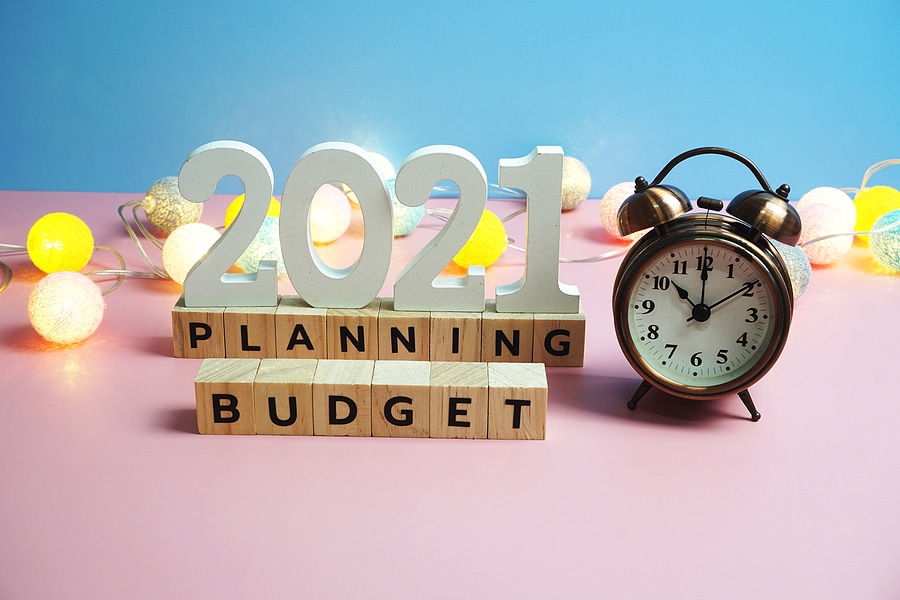
Meet your 2021 financial resolutions with our accounting team
A new year means new year’s resolutions.
For most of us, that means things like bringing your diet under control, learning a second language, finally knocking out that DIY project or simply changing your outlook on life.
All of these are good things, to be sure – if you ask us however, there’s one more thing you need to add to your resolutions list: your finances.
You don’t need us to tell you that good finances and financial planning are key to getting where you want to go.
Unfortunately, many Aussies either don’t give it the attention it deserves or worse, overlook it entirely in favour of their other resolutions or straight-up dismissing it as “too complicated”.
Depending on your financial situation, it can be hard to find a starting point – luckily, our accountants have a couple of places where you can get the ball rolling…
Financial new year’s resolutions
Keep tabs on your expenses
It doesn’t even have to be all that in-depth – just checking your bank account at the end of each week and tallying up your cash outflows at the end of each month can go a long way towards helping you keep your spending under control.
With online banking, it’s never been easier to stay on top of your expenses and keep your spending in order.
It’s a simple trick, but it can go a long way – and you don’t even need to talk to a professional about it!
Budget, budget, budget
You’d be surprised by how many Aussies don’t budget – something that’s extremely easy and which you can use to help turn your finances around!
Once you have a solid idea of how much you spend and where your money goes, you can get started creating a rough budget.
Be sure to break it down by different types of expenses, as well as down to a monthly, weekly and even a daily basis if needed.
Pay off debt
The word “debt” carries with it a lot of punch – however, that doesn’t mean that it’s an inherently bad thing provided that:
- Your debts are at a reasonable level
- You can afford to pay them off
Of course, that doesn’t mean that you should let them build up if you can avoid it!
One of the most common financial new year’s resolutions our personal accountants are called to help with is paying off debts and other liabilities.
If you need us to, we can help you devise a plan to pay off your liabilities and bring you back into the black.
Build a rainy day fund
If your expenses and budget allow for it, it’s a great idea to work on building an emergency fund alongside allocating money towards your financial end-goal.
As we all know, life has a habit of throwing all sorts of unexpected expenses your way. It’s essential that you have enough money stashed away to respond to these surprises as they arise.
Some Aussies are unfortunate, and need to direct all of their money towards meeting the expenses of day-to-day life. For others however, they have enough income coming in – the issue is reckless spending.
Be careful when playing the stock market
COVID-19 has changed a lot of things – one area that few people are focusing on however is its impact on investment.
Specifically, we’re seeing a surge in the so-called mum and dad investors. These are people trading on their own, often using smartphone apps – and you might be one of them.
And if you are, you’ll need to be careful.
In some ways, trading a bit like gambling (in fact, some actually use it as a gambling substitute) – while there are tactics you can use to minimise risk, a lot of it is down to dumb luck.
Just because something works once doesn’t mean that you should assume it’s a foolproof investment strategy. And we haven’t even gotten started on all the laws and regulations involved (which make financial planning in Australia something that you shouldn’t DIY).
If you plan on playing the stock market – and don’t want to lose money in the process – it’s important that you get in touch with a financial planning specialist.
4 essential first steps towards achieving your financial new year’s resolutions
Step 1: define your financial objectives and goals
This doesn’t just apply for your new year’s resolutions, either – any financial change needs to be preceded by a session where you figure out what your endgame is.
After all, how are you supposed to plan if you don’t know where you’re going?
Ideally, your financial goals should be:
- Quantifiable and measurable
- Have a clearly-defined timeframe
- Realistic
- Accompanied by intermediate goals and milestones
Additionally, it’s important that you separate your needs from your wants – when thinking about your objectives, separate them into subgoals and categorise them as essential and optional.
Of course, just because you’ve finished listing your objectives and goals doesn’t mean that your work is over. You’ll want to periodically review these to account for changes in circumstances, and ensure they still reflect what it is that you want.

Step 2: start looking at your finances
The next step after deciding where you want to go is taking stock of what you have right now. When it comes to financial planning, it’s crucial that you understand where you’re coming from, as well as how much ground you’ll need to cover.
That means bringing an accountant onboard to look at your current:
- Income
- Financial position
- Liabilities
- Assets
Understanding all of these things helps determine what you need to do, as well as what can be done and how quickly.
Of course, it doesn’t end there – in order to truly understand your financial situation, an accountant will also crunch the numbers. They may analyse your finances using a number of different ratios like liquidity, solvency and savings rations for a more holistic view of where you’re at.
Once you and your accountant have figured all of this stuff out, you can then move on to the next step…
Step 3: planning and budgeting
Now that you’ve laid the groundwork, it’s time to start planning.
The first part of putting together a plan is creating a budget that guides your spending, and ensures that your expenses stay at a level that allows you to reach your goals.
Of course, budgeting is only one part of this process – when creating a plan, your accountant will also create intermediate goals and milestones, and assess what you need to do to meet these intermediate goals.
They’ll also determine your tolerance for risk – something that’s crucial in financial planning. If you prefer a conservative, slow-and-steady approach, they’ll take that attitude towards your financial planning, and vice versa.
One all of this information is figured out, it’s time to put together an action plan that accounts for your unique circumstances.
In some cases, clever budgeting may be all that’s needed – if your goals are more dramatic or you have a higher tolerance for risk, you might end up with a new investment strategy or tax plan.
Either way, it’s best to get in touch with a professional
Step 4: evaluation
Your plan’s been implemented – however, that doesn’t mean that you can just put it in the cabinet. That’s how so many new year’s resolutions end up not being fulfilled!
Throughout the process, you and your accountant will want to go over your plan, evaluating how it’s performing and whether or not it’s fitting in with your timeframe.
Have your circumstances changed? Are you moving faster than expected? Run into unexpected problems? If so, your plans might have to change.
Don’t be afraid to ask for help
When it comes to financial planning, it’s imperative that each decision you make is carefully thought out and backed by experience and sound strategies.
While you can find some pointers online (such as in this blog), the only way to get advice that’s tailored for your unique situation is to get in touch with a professional.
Our accountants in Melbourne don’t just look after your accounting, either.
We also offer in-house financial planning services thanks to our partnership with Graeme Matthews, an experienced Financial Planning Association of Australia-certified specialist.
In conjunction with our accounting team, our financial planning specialists work hard to get you where you want to be and turn your financial new year’s resolutions into action.
Find out how we can help you – get in touch by calling (03) 9589 5488, or by clicking here.






















